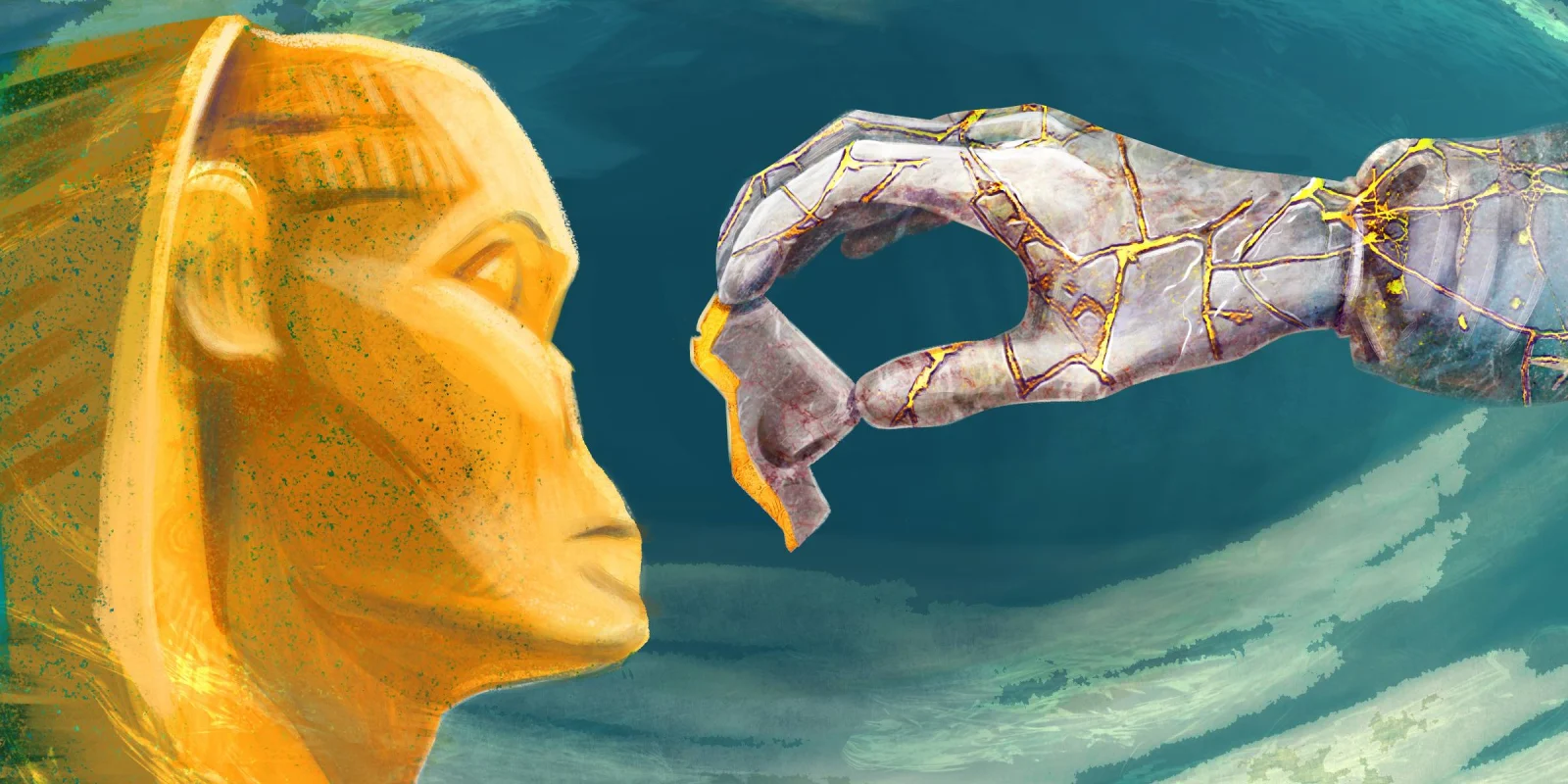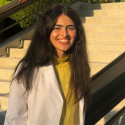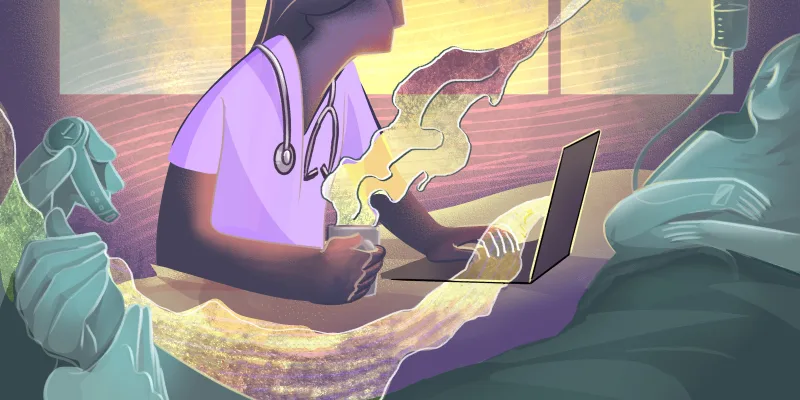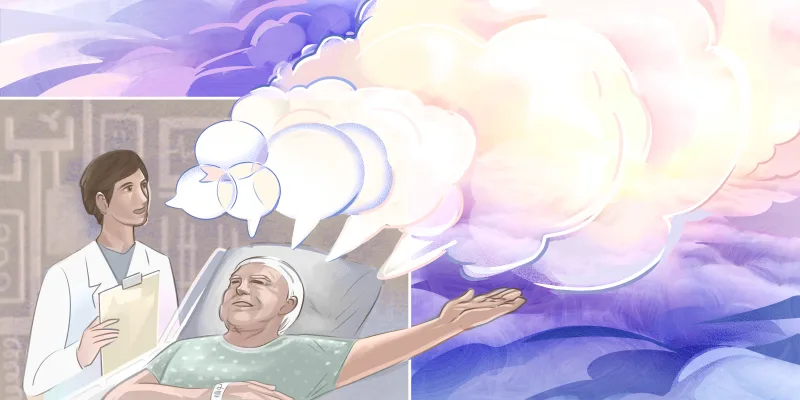From the start of medical school, learning anatomy was a challenge. As someone who admittedly is not a visual-spatial learner, trying to understand anatomy took a lot of work. It required long study sessions repeatedly trying to draw out the muscles, nerves, and innervations. During one of these extensive study sessions, before my second anatomy exam, I reached under my desk to grab a pen and knocked over my favorite mug. It was a tall ecru and turquoise tumbler with the words “Be Kind” inscribed on the front in typewriter font. It wasn’t really my style, but throughout MS1, for some irrational reason, I had started to associate it with studying anatomy.
So when the mug fell unceremoniously and chipped, I kept using it. That is until the morning of my third anatomy exam, where my blinds detached themselves entirely from my windowsill and knocked over everything below it, and thus ‘Be Kind’ became irreparable. I replaced the mug with a tall pink glass bottle, a new companion for my many study sessions. Then, in the week leading up to my next anatomy exam, it fell out of my backpack and shattered into pieces.
I stared at what was once my bottle as water pooled onto the pavement. At that moment, I really started to question myself. Not only did my understanding of anatomy feel fragmented, but the environment around me was reinforcing this in a very literal way. Despite numerous changes to my studying approach, increased time spent studying, or how much I felt like I knew the material, my anatomy exam scores didn’t reflect any of these changes. I began to wonder if I had hit my ceiling, which was disheartening.
In an effort to take my mind off of the frustrations of anatomy, I decided to read a book. Upon realizing I didn’t have any new reading material, I did some research. I began a deep dive into the best books on Taoism and stumbled upon an ancient Japanese design principle known as wabi-sabi, which encourages finding beauty in broken pieces. Although the term has many meanings and interpretations, author Richard Powell describes it to a Western audience as embodying three principles: “Nothing Lasts, Nothing is Finished, Nothing is Perfect, and therein lies the beauty.” Wabi-sabi emphasizes acceptance of ourselves and the fact that everything around us is in a constant state of flux. Instead of trying to reject the inevitabilities of growth, change, and eventual decay, we should embrace them.
It’s a simple idea, but one that resonated with me. As a medical student, I feel like I am in a perpetual cycle of amassing enormous amounts of knowledge, mastering it, and then dumping it from my brain after the exam to make space for new material. There’s also the pressure of constantly striving for perfection, whether it be in the form of a perfect board score, the perfect sutures, the perfect performance on rounds, or the perfect remedy for your patients.
Reading about wabi-sabi made me realize that what I strived for, a state of unlimited knowledge without any lapses in my memory or flaws in my judgment, was a state that does not and will not ever exist. And while it can seem like a noble endeavor to try to come as close to this state as possible, we risk driving ourselves to the point of burnout (something 67% of physicians can endorse).
I started to recognize that instead of rejecting imperfection, there is some nature of wabi-sabi inherent to medical training. We will never be the “perfect” medical student, intern, or resident because there is always more knowledge and experience to be found around the next corner. We will never fully know everything there is to know and be a “finished” doctor because medicine is a constant cycle of learning, forgetting, making mistakes, adjusting, and improving. If we cling too tightly to perfection we cannot let go and create space for the misgivings that make us human and the moments of failure that often teach us the most.
Our flaws or “chips” can paradoxically contribute to our greatest strengths, even though we may be reluctant to admit it. Perhaps we spend too long with our patients and fall behind, yet simultaneously we may pick up pertinent details that an otherwise efficient clinician may have missed.
And of course, nothing lasts forever. We will not be an inexperienced medical student forever as we are constantly inching forward with each new experience we have, and each new patient we meet. Gradually we will become a slightly more experienced medical student, and then later a very experienced medical student, until the glass shatters entirely and it is time to become a resident and start from scratch again.
We cannot “win” at health care, but with wabi-sabi, we get to appreciate the beauty of it a little more and find our place within the system. The beauty of the constant evolution, the acquisition and release of knowledge, and the ever-changing tides of medical knowledge can be seen as something that we are privileged to experience.
Once I started to apply wabi-sabi to my own life and began to let go, to relieve myself of the weight of having to know absolutely everything, I created space to simply be more curious. To explore things in-depth without worrying about failure. This allowed me to appreciate the fact that the fragmentation of knowledge was not only normal but arguably a necessary part of learning. We are at once presented with an enormous amount of information and in order to learn it, we can’t just digest it all exactly as it is given to us. Instead, we must allow it to break into pieces and then figure out how to rebuild those fragments into something that resonates more with us, our prior experiences, and our current knowledge base. It was only then when I let go and accepted the cycle of growth and decay as a natural part of learning, that I saw the improvement I had been trying so hard to force.
What are some of the ways wabi-sabi might apply to your journey in medicine? Share in the comments!
Neha Sahota is a second-year medical student at USC Keck. Outside of medicine, she likes to read, travel, and try new coffee shops. You can find her here on LinkedIn. Neha Sahota is a 2024–2025 Doximity Op-Med Fellow.
Illustration by April Brust





